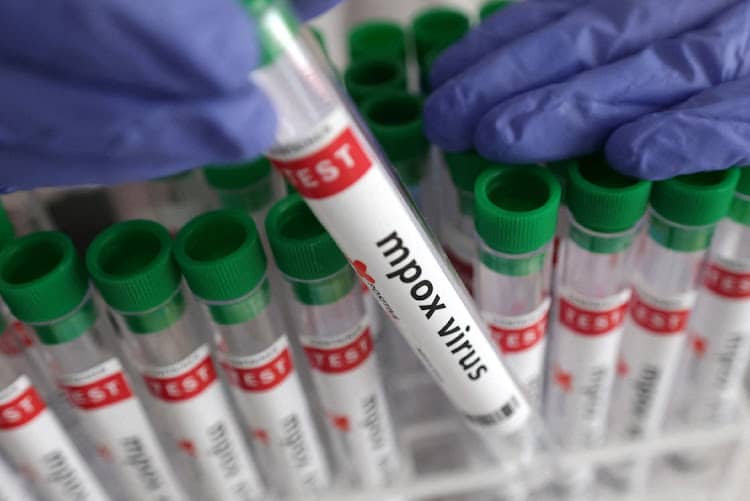
LONDON, Nov 15 (Reuters) – Global health advocates have written to the makers of a key mpox diagnostic test to call for its price to be cut from around $20 per test to $5, to help tackle low testing rates in poorer countries badly hit by the virus.
Medical diagnostics firm Cepheid’s GeneXpert mpox test is one of three approved for emergency use by the World Health Organization, but the price is prohibitive for countries like the hardest-hit Democratic Republic of Congo, activists said.
Mpox was declared a global public health emergency by the WHO this summer, when an outbreak in Congo began to spread to neighbouring countries. The virus typically causes flu-like symptoms and pus-filled lesions and can kill.
This week, WHO said cases in Africa showed a “general rising trend” although they may be levelling off in parts of Congo. But a lack of tests is hindering the capacity to confirm cases, particularly in Congo, one of the world’s poorest countries.
“We urge you to lower the price of the mpox test cartridges to $5 and prioritize supply for African countries fighting mpox outbreaks,” read the letter sent by groups including rights NGO Public Citizen and medical charity Medecins Sans Frontieres.
Cepheid’s test is particularly important because machines that process the results are available across Africa, as they are also used for tuberculosis testing.
Danaher DHR.N, the parent company of Cepheid, reduced its TB test prices to $7.97 last year after pressure from activists.
Asked for comment on the letter, a Cepheid spokesperson wrote: “We have worked quickly to ramp up production of our mpox test, including in response to an urgent request from the WHO.”
The company was prioritising orders from areas where the test was most needed and had an access programme providing a “significant” discount for orders made through the WHO and similar organizations, the statement said. It did not reveal what that discount was or make any other comment on price.
The $5 price tag proposed by advocates is based on research showing that the tests can be produced for less than that.
Public Citizen’s access to medicines director Peter Maybarduk said the recent WHO approval was an opportunity to ramp up testing. “Lower prices would help health agencies meet the moment,” he said.
(Reporting by Jennifer Rigby; Editing by Ros Russell and Philippa Fletcher)

